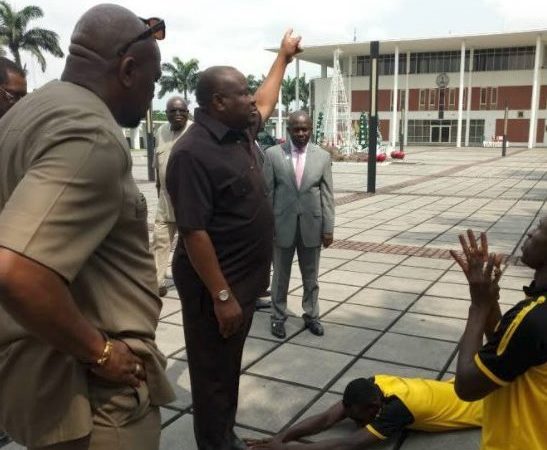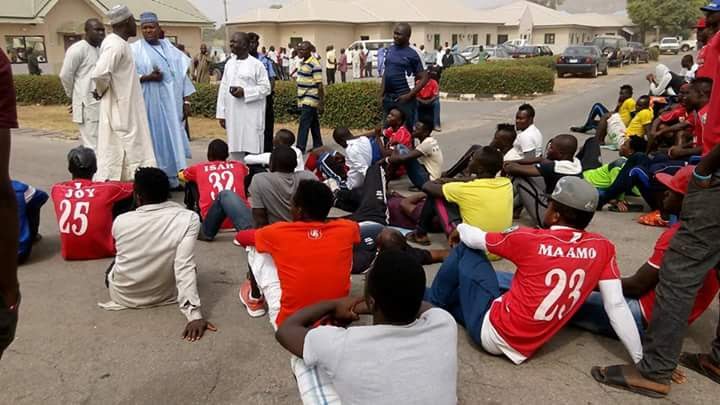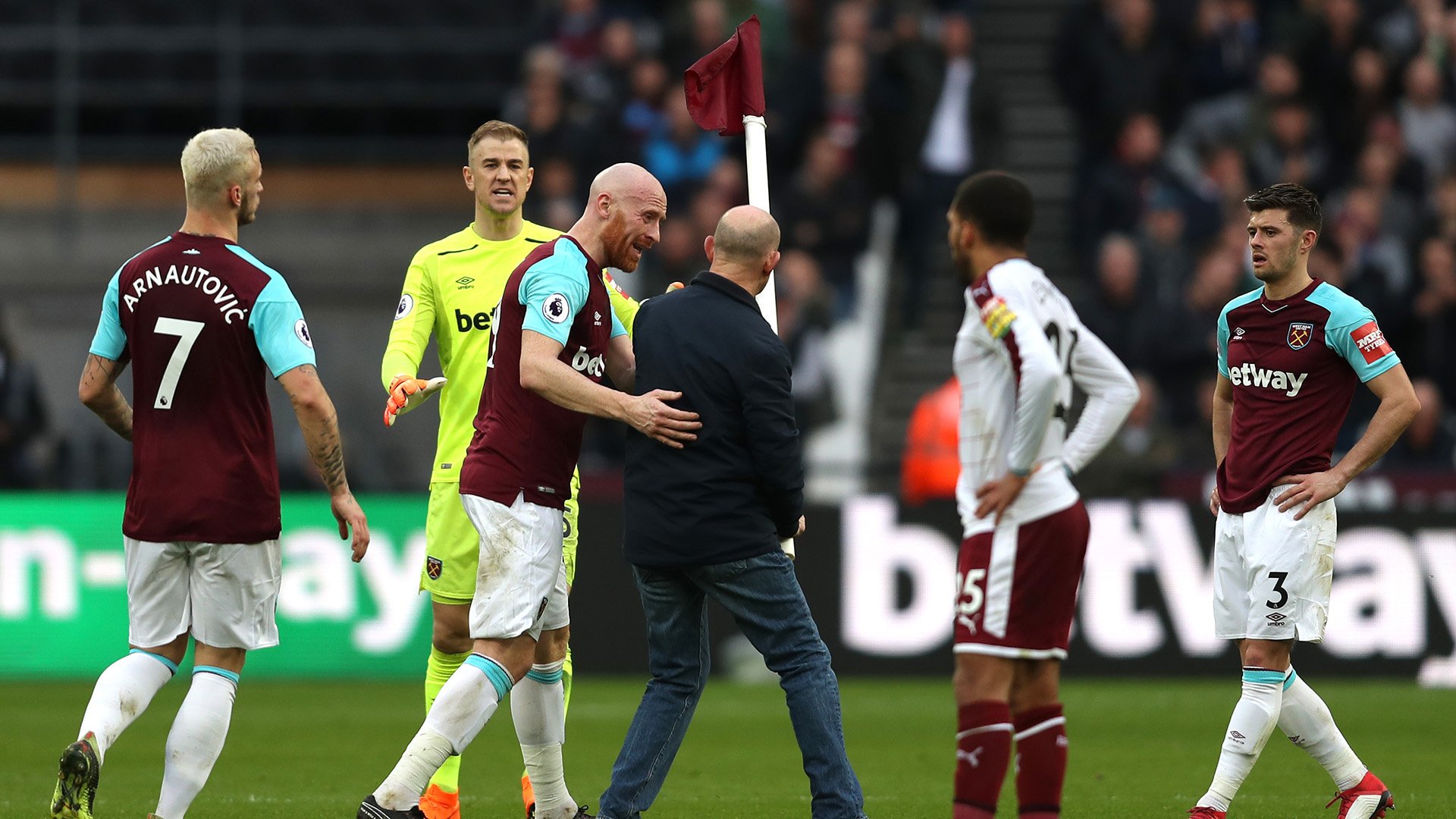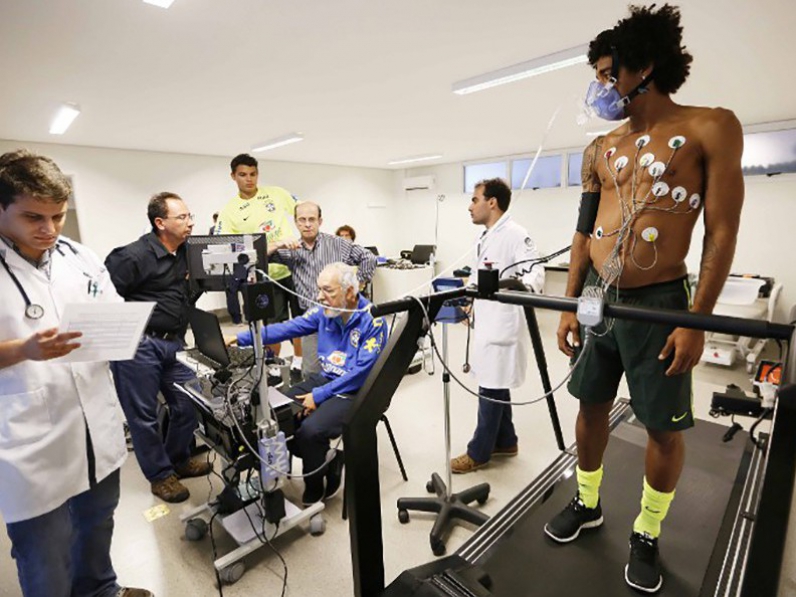
Effective Ways For Footballers In Nigeria to Recover Remunerations Owed Them By Clubs
It is common occurence in the Nigerian football industry for Footballers to be heavily owed salaries. In fact, it has almost become the norm.
That is saddening, but even more saddening the manner the footballers in the Nigerian leagues go about the recovery of salaries being owed them by the football clubs they play(ed) for; usually known as “overdue payables“.
It is baffling why most of them go about begging their Club Chairman, the Governor and/or Commissioner for Sports of the state? Why do they beg for the money like it were some loan or gift they are asking for?

Players having a sit-out to protest non-payment of their salaries.
This article seeks to address this perception of players, especially the mindset that sports employment-related disputes cannot be tabled before civil courts.
Below is what players can do:
1. Non-Nigerian Players in the Nigerian league.
For a non-Nigerian player owed by a Nigerian football club, his or her claim can be filed at the Dispute Resolution Chamber (DRC) of FIFA. The DRC will accept such a case because it is of “international dimension”, as stated in Article 22 (b) of the Regulations on the Status and Transfer of Players (RSTP).
It may interest you to know that the DRC does not charge players filing fees for such employment disputes. The only cost the player may incur is the professional fess the Attorney or Representative may charge; which is sometimes paid after judgement has been obtained – known as “contingency fees”.
Our firm has had the opportunity to be involved and/or personally represent a few players from countries such as Ghana, Mali, Benin Republic, etc; so it can be recommended as a reliable avenue to recover the entitlements of players. (Note that such a claim must be filed within two (2) years of the cause of action, to avoid it being statute barred).
After the player has obtained judgement against the Nigerian club, the DRC gives the club an ultimatum (usually 30 days) within which the club must pay the judgement sum (money). Before now, in the event that the club fails to pay within that period, the defaulting club used to be referred to the FIFA Disciplinary Commitee which may then fine the cub, ban the club from signing players, deduct points from the club’s accumulated points, or even ban the club from football competitions until the club complies.
However, pursuant to the latest RSTP which became effective from June 2018, the DRC now has the power to include sanctions in its decisions without the need to refer the case to the Disciplinary Committee upon the non-compliance of a club.
2. For a Nigerian player who has a claim against a Nigerian club, the DRC would reject it as it is expected to be adjudicated on by the NFF Arbitration Committee; being an “internal dispute”.
Thus, such a case can be submitted to the NFF Arbitration Committee which would give an arbitral Award (a decision) and order the defaulting club to pay the player, or face sanctions similar to those earlier-mentioned that FIFA dishes out.
However, in reality, many Nigerian players at left stranded because the NFF often fails to enforce the decisions, by sanctioning defaulting clubs.
In fact, there are arbitral awards that were delivered as far back as 2010 which have not been complied with by Nigerian clubs till now.
So if a player has, or is subsequently able to get an arbitral award at the NFF Arbitration Committee, he/she can approach the regular court (National Industrial Court) to have it enforced.
Note that this must be done within 6 years from the date the arbitral award was obtained. There are players who have lost their entitlements because they failed to enforce such arbitral awards within 6 years as stipulated by the Statute of Limitation. It is better to enforce compliance rather than beg.
Meanwhile, Some may ask the question of what to do in the face of inefficiency by the NFF Arbitration Committee; especially that the committee is not constituted at the moment.
In this circumstance, a player may get an Attorney to file an employment dispute on his or her behalf at a civil court. The civil court vested with jurisdiction on employment disputes is the National Industrial Court (NIC). This is by virtue of the provisions of Section 254 (c) of the 1999 Constitution (as amended) and the National Industrial Court Act 2006.
You may wish to note that although Article 68 Para 2 of the FIFA Statutes stipulates that recourse to ordinary (civil) courts of law as regards disputes is prohibited, employment disputes do not fall under this prohibition.
A player can decide to file an employment-related dispute at a competent ordinary court, because the choice of judge is a fundamental right that cannot be denied. (See FIFA Commentary, explanation Article 22, page 64)
In fact, there are some employment disputes which the FIFA DRC rejected on the ground that the parties had already submitted the dispute before the regular courts in their country, and that such courts have jurisdiction to hear the cases.
Thus, except the contract a player signed with a club expressly states that disputes cannot be referred to ordinary courts, or it states that the NFF Arbitration Committee/FIFA DRC/Court of Arbitration For Sport shall have jurisdiction on disputes; then a player can approach the National Industrial Court to recover his/her entitlements.
Written by:
Tosin Akinyemi, Esq.



